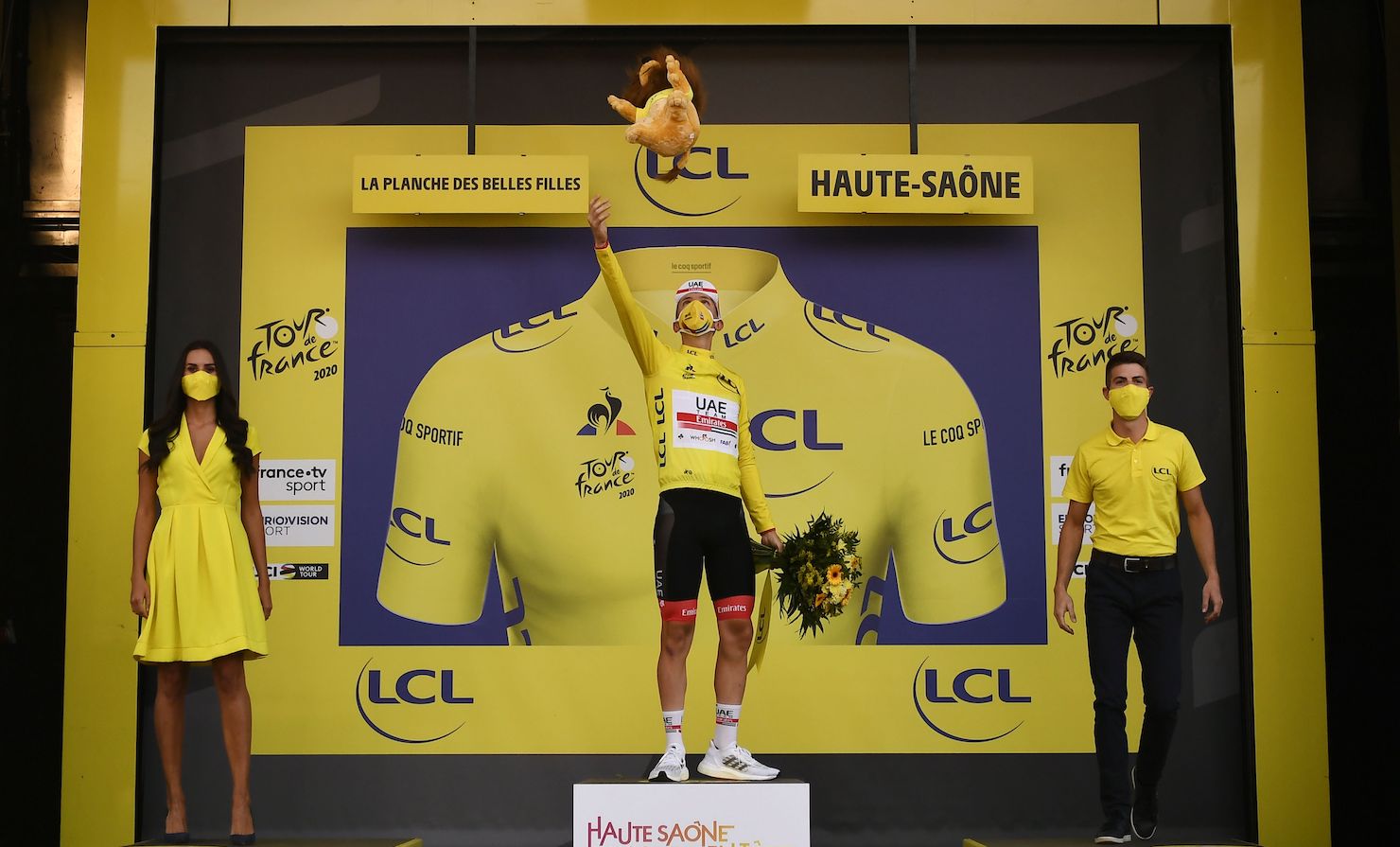A race as long and strenuous as the Tour de France only occasionally lends itself to dramatic endings on par with a buzzer-beater or a walk-off. The yellow jersey is usually won through grinding effort and slow attrition over the course of weeks, not singular, emphatic moments of brilliance. This year's Tour neatly followed this pattern for 19 stages, until 21-year-old Slovenian rider Tadej Pogacar shocked the cycling world and rode into the final yellow jersey with the most dramatic performance in a long time.
It is difficult to hyperbolize what Pogacar did on the time trial yesterday. He became not only the youngest Tour de France winner in 116 years, but the first rider in race history to win the yellow, white (best young rider), and polka dot (king of the mountains) jerseys in the same race. Pogacar set the fastest recorded ascent of La Planche des Belles Filles, and that record was set despite performing a bike change several hundred meters into the climb and riding with neither a power meter nor a heart rate monitor. The closest comparison I can think of to American sports is The Play, if it also won Cal the national championship.
Pogacar started the Stage 20 time trial 57 seconds behind his countryman Primoz Roglic. That seemed more than enough cushion for Roglic, who'd spent 11 days in the yellow jersey and had distinguished himself as one of the best time trialists in the peloton. Roglic has won four time trials in Grand Tours, and he had just spent the entirety of the mountain stages comfortably protected by the strongest team in the race. In contrast, Pogacar had to race through the hardest days in the Tour without any real help after Fabio Aru abandoned on Stage 9 and pissed off his team's manager. One minute is not a large margin for a 36-kilometer hybrid time trial with a big climb at the end, but Pogacar's most likely outcome still seemed like a rousing second-place finish.
Instead, he annihilated Roglic and everyone else, crossing the line in 55 minutes and 55 seconds, 1:21 faster than the second-place rider and two whole minutes ahead of Roglic. For his part, Roglic had a solid ride, finishing only 36 seconds behind second-place former world time trial champion Tom Dumoulin. It's not that he collapsed; Pogacar simply outraced him.
There have been dramatic penultimate-day yellow jersey switches before—Cadel Evans's beheading of Andy Schleck in 2011 comes to mind—but it's hard to find any Tour-winning performance this good since 1989. On the final day of racing that year, American rider Greg LeMond made up for a 50-second deficit and won by eight seconds, still the smallest margin of the modern era.
Pogacar's age, lack of team support, and winning margin push this win from unexpected to historic, though Roglic's dominance of the yellow jersey throughout the race belies how strong Pogacar has been over the course of weeks. Had he not dropped 1:21 to Roglic on the crosswinds of Stage 9, he would perhaps have captured the jersey much earlier. And in the high mountains, he established himself as the fastest finisher among the elite group. Six stage wins, and two podium finishes in two Grand Tours, show a rider who can win the day and the week against anyone in the pro peloton.
Pogacar's win comes one year after Colombian Tour de France winner Egan Bernal had set records as the youngest winner in the modern era. Bernal flamed out of this Tour and never looked comfortable, but the two youngsters and Remco Evenpoel (who missed the Tour because he crashed off a bridge during a race last month) look like a generation of stars ahead of their time.






